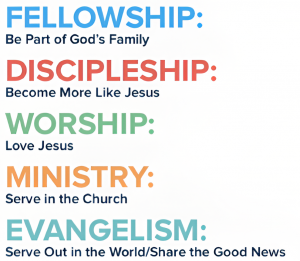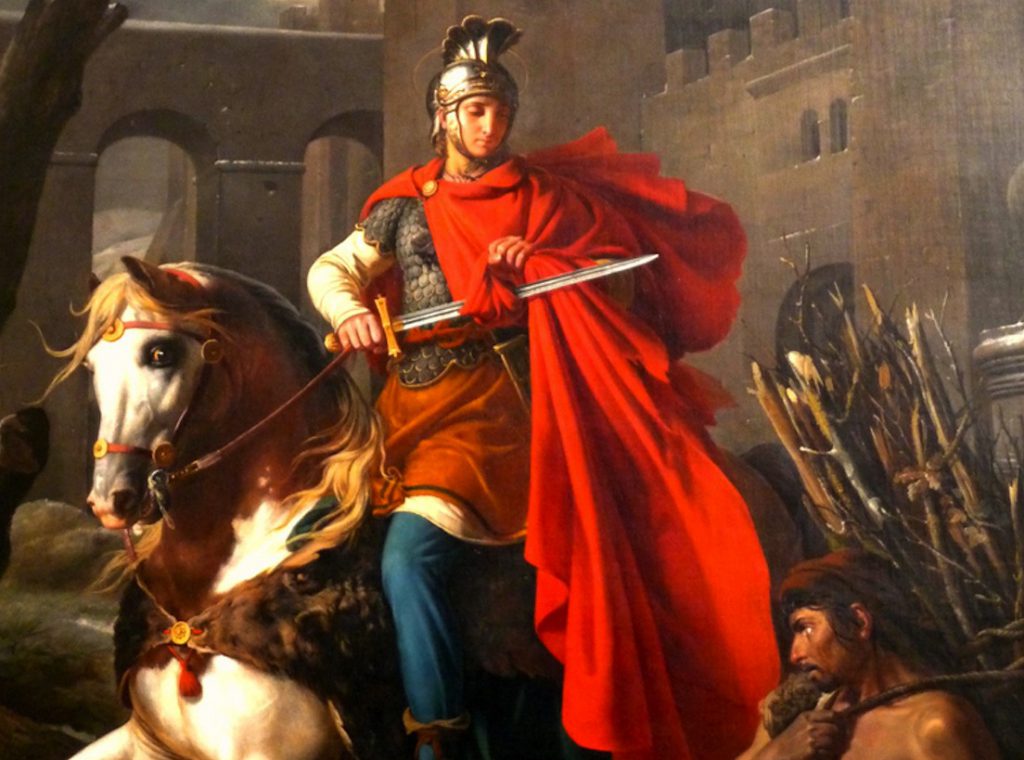The following quote is what God the Father is saying to us today: “You were put on earth to make a contribution. You weren’t created just to consume resources — to eat, breathe, and take up space. God designed you to make a difference with your life. While many best-selling books offer advice on how to ‘get’ the most out of life, that’s not the reason God made you. You were created to add to life on earth, not just take from it. God wants you to give something back” (Rick Warren, The Purpose Driven Life, 225).
We’re continuing our Big Picture homily series. We’ve covered evangelization, discipleship, and now, because of the Readings, we ponder our vocation to serve others, a vocation called ‘ministry’ or ‘service.’
Here’s a three-minute video about a life of ministry, and Eric Mahl will focus on God’s mercy, true life, doing good works, and the importance of Jesus, which are the four points we’ll ponder from the Second Reading.
1) St. Paul writes, “But God, who is rich in mercy, out of the great love with which he loved us… made us alive together with Christ” (Eph 2:4-5). In this part of his letter, St. Paul had just written about humanity being dead in our sins, separated from God, and living totally for ourselves. God responds by ‘loving’ and having ‘mercy’ on us, which go together: love’s second name is mercy, according to St. John Paul II; whenever love encounters some kind of evil, whether someone is spiritually far from God or physically in pain, it becomes mercy when it reaches out to help. God sees us dead in sin, and sends His beloved Son to give us life.
2) ‘Made us alive’ refers to spiritual life. Eric Mahl, when playing football, was alive, but not spiritually alive in a full way because he wasn’t following Jesus completely. Those men to whom he was reaching out may also not have been fully alive if they hadn’t experienced Jesus’ love for them and responded. They may have had resentment in their hearts or no more hope, which is a kind of spiritual death.
3) At the end of the Reading, St. Paul says, “For we are what he has made us, created in Christ Jesus for good works, which God prepared beforehand to be our way of life” (2:10). What is ‘to be our way of life’? ‘Good works.’ People who are alive give life to others. When we have hope, we give it to others. Jesus gave us life that we might also give life to others.
The Church teaches, “Man… cannot fully find himself except through a sincere gift of himself” (Gaudium et spes, 24). When we are selfish, we evade our true identity. But when Eric loves the homeless, talks to them about Jesus, and washes their feet, he gives of himself, and that’s when he finds himself, who God made him to be.
4) St. Paul makes clear that while we’re made to do good works, good works don’t save us; it’s Jesus Who saves us. Five times, St. Paul mentions Christ because He’s the One Who forgives sin, and twice he writes “by grace you have been saved,” and “by grace you have been saved through faith” (2:5,8).
We’ve covered this point many times in the past year, but, recently a wonderful visit to our Gr. 4 class in our school revealed that we still need more time to assimilate this truth. When I asked them about how to get to heaven, they mentioned being nice, praying, keeping the commandments, etc., but prayer and ‘faith’ help us receive God’s ‘grace’ and it’s that which takes away sin, not the prayer.
So, please answer the following yes-or-no questions: 1) Is it necessary for Christians to do good works? Yes. 2) Is it a sin to be lazy and avoid good works? Yes. 3) Do good works save us? No. 4) Will being nice and doing good works get people into heaven? No. So, what saves us? The grace of Jesus, or, it’s just as accurate to say that Jesus saves us.
With regard to our parish, so much of ministry is done outside of this church: We serve our family, neighbours, friends, and there are lots of volunteer hours that no one sees. However, I think this is the system where we could use the greatest work. I haven’t emphasized this system as much as evangelization and discipleship—do you know why? Because of everything we just said; without evangelization and discipleship, we have no relationship with God, so they come first. But, as expressions of our love for God, we should try to grow in our love of neighbour.
Let me highlight three ministries: 1) Works of mercy to the sick. We praise God for Annie Ma and the team who visits those at home. If you have a loved one who can’t come to Mass, or you feel the Holy Spirit’s call to join the team, please contact Annie.
2) 40 Days for Life is challenging because our culture disagrees with us, but it helps those who are the most vulnerable in society. In addition, as we pointed out a month ago, starvation kills 11 million worldwide but abortion kills 73 million. Let’s praise God for the 301 people who served God and neighbour by bearing witness to life.
3) Maritta, who leads our Sacramental Life Team for those who are becoming Christian, is now inviting them to serve the poor once a month at the Door is Open. She’s opening the invitation up to a limited number of people who feel the call to serve.
Let’s end with the famous story of St. Martin of Tours, which has inspired generations of people and which I shared once.
Born around 336 A.D. in modern-day Hungary, Martin was interested in becoming a Christian roughly at the age of ten, but his father forbade him, and insisted that he become a soldier in the Roman army as he was. After fighting for at least three years in the imperial guard, he was stationed in Amiens, modern-day France, and one day during winter, while approaching the city gate, a man half naked, shivering in the frosty air, asked for alms. While others ignored him, Martin, who had only his weapons and clothing, took out his sword, cut his cloak in half and gave it to the beggar, while others laughed at him. That night, in a dream, Jesus appeared to him wearing that half of his cloak, and said, ‘Martin, still a catechumen, has covered me with this garment.’ After this, he insisted on being baptized, and was discharged from the army, saying to Emperor Julian, ‘Up to now I have served you as a soldier. Now let me serve Christ. Give the bounty to these others—they are going to fight, but I am a soldier of Christ’ (November 11 in Butler’s Lives of the Saints, 83-84).
Like all people, Martin experienced deep in his heart that he had to help others. But this isn’t what saved him. What brought him to heaven was Jesus’ grace. He then became fully alive and spent his life doing good works, and his greatest work was giving Jesus’ mercy to others.



